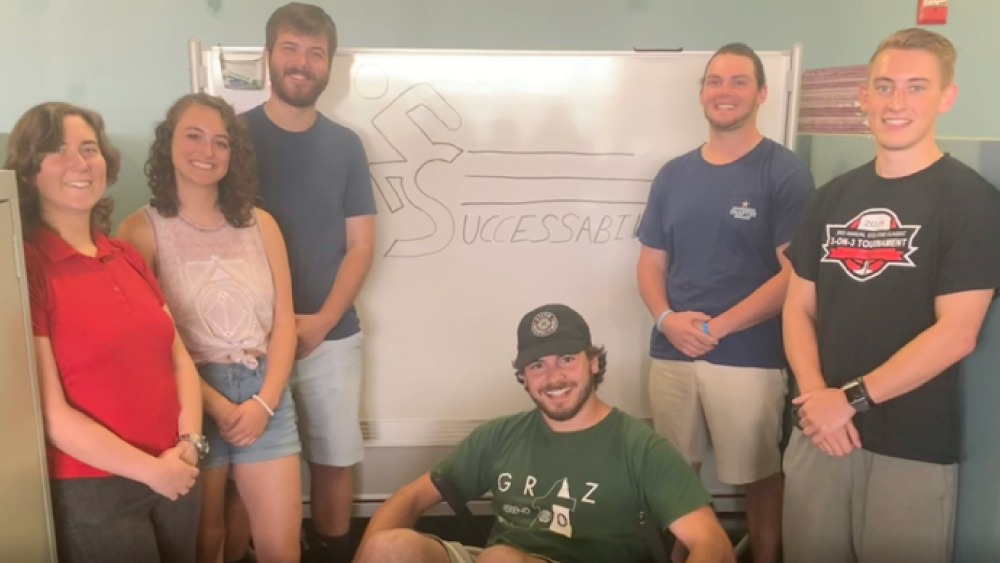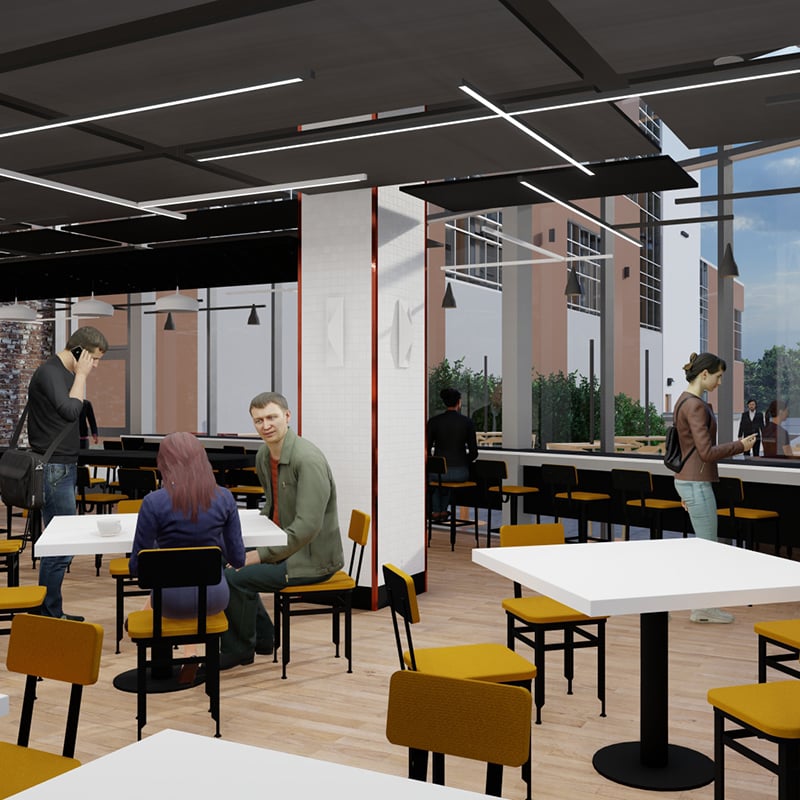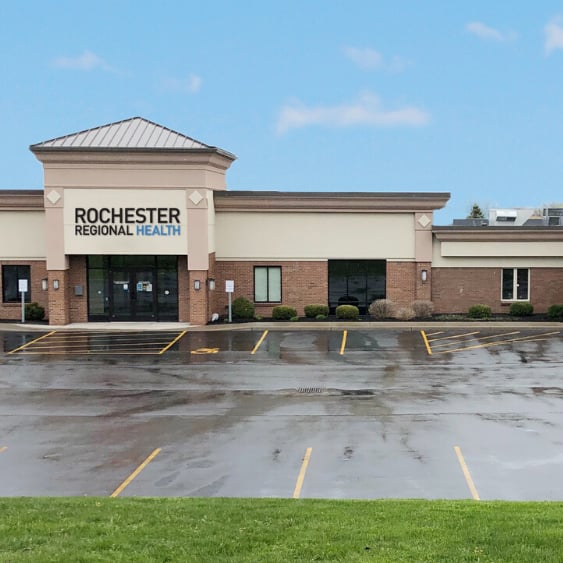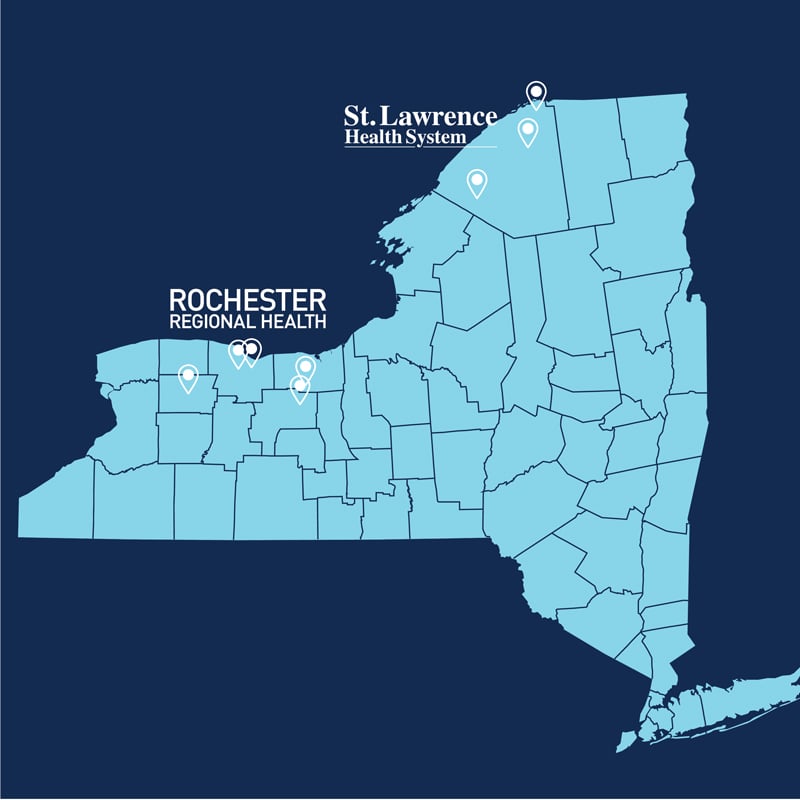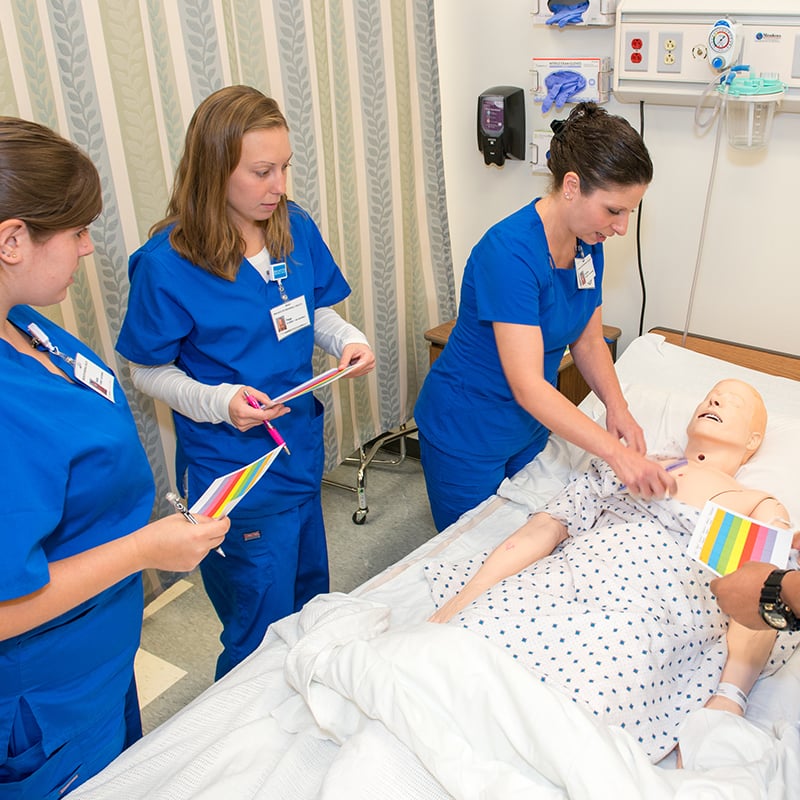Operating through the Albert J. Simone Center for Innovation and Entrepreneurship, IdeaLab is an innovation laboratory created to bring challenges brought up by organizations or institutions to problem solvers at Rochester Institute of Technology. Rochester Regional Health is one of the organizations that is proud to work with the creative minds at RIT and see how a partnership can flourish.
Rochester Regional Health’s Senior Director of Emerging Technology Aaron Burton shares about this partnership and how it benefits not only the student participants, but the entire community.
What is IdeaLab?
IdeaLab is an innovative design-thinking program that brings together RIT students and faculty with multidisciplinary expertise in the fields of engineering, information technology, computer science, human-centered design, graphic design, and other disciplines to solve unique challenges faced by Rochester Regional Health.
The goal of IdeaLab is to drive product innovation that solves real world problems for both health care patients and the health system.
Over a 2-day period, students brainstorm, design, and create under the guidance of an RIT faculty member and a sponsoring Rochester Regional team member. At the end of the second day, student teams present their approach, designs, and prototypes to the Rochester Regional sponsors. Successful projects may then expand further into research and product development programs. IdeaLab runs twice each year – once in the spring and once in the fall. Each event will bring anywhere from 4-6 challenges for student groups to work on.

A design concept for an infant exam and transport platform created by RIT students in IdeaLab
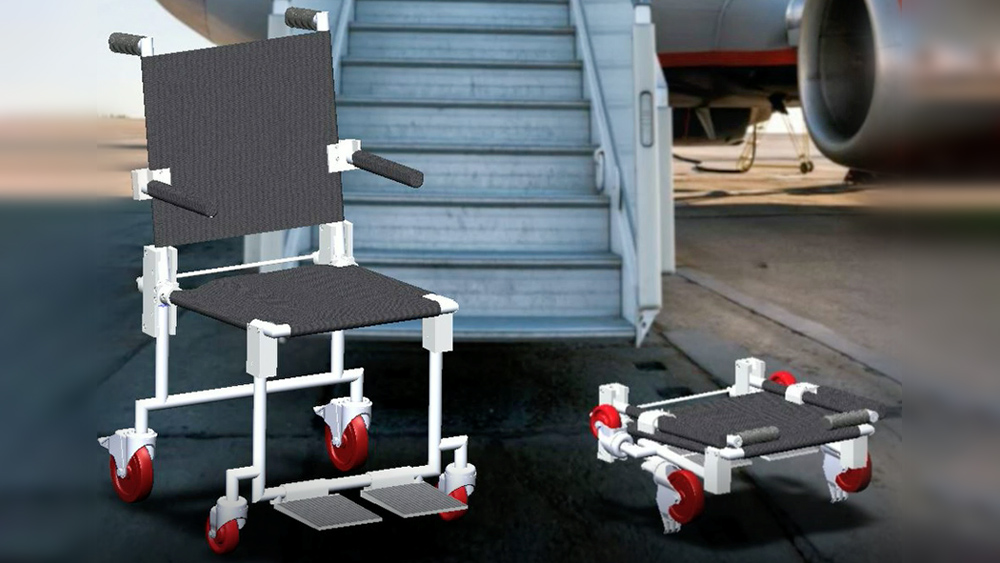
A concept for a collapsible wheelchair created by RIT students in IdeaLab
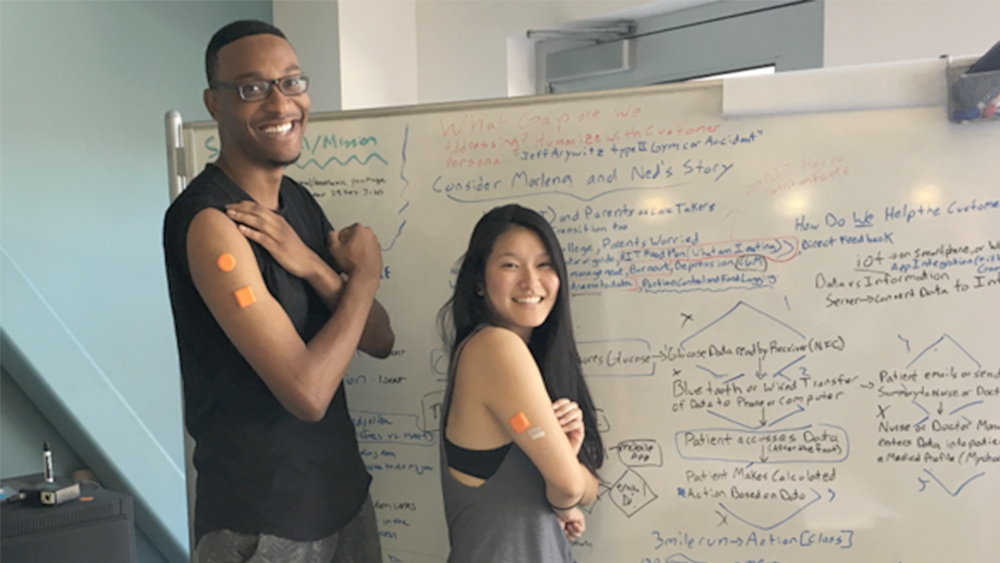
RIT students work on a prototype for IdeaLab
“IdeaLab is a great place to explore a problem and design a concept that could eventually evolve into a working prototype at RIT,” Burton said. “It all starts with exploring a problem, looking at it from multiple lenses, and uncovering a direction that may lead you to a solution. IdeaLab is a wonderful environment that gives students the freedom to practice problem-solving skills. Students benefit tremendously from working directly with Rochester Regional employees on real problems that exist in healthcare.”
Driving healthcare innovation forward
Building on the solutions created through IdeaLab, some concepts evolve into prototypes through other programs at RIT such as Studio 930 RIT Design Consultancy and the Multidisciplinary Senior Design (MSD) program.
Studio 930 is a 10-week program that runs during the summer; MSD is an intensive two-semester program focusing on product manufacturing costs, feature competitive analysis, design, and building a solid working prototype.
Since the program’s inception in 2013, several products initially built as IdeaLab prototypes have moved through Studio 930 and MSD program, and evolved into partnerships with local industry experts.
Harbec Plastics is incorporating a design produced through IdeaLab to build a new speculum device to be used by healthcare providers. BZDesign, Inc. is also developing a cord & tube system based on a prototype that was first developed in IdeaLab that can be used for arthroscopic surgery.
A rewarding process
Students are able to incorporate the skills they learn from IdeaLab into RIT’s co-op program as they progress in their academic careers. Some students go on to work for leaders in the technology industry such as Google, Microsoft, and Amazon. Bioengineering and industrial design students are able to achieve similar results.
Rochester Regional employees are able to see their ideas for better healthcare flourish and take on new forms with the goal of benefiting our community. As a health system, Rochester Regional can take pride in knowing they are advancing the standard of healthcare for the community in innovative ways.
“I enjoy working with the students and employees and helping to lead the creativity on the projects,” Burton said. “The students in these programs are genuinely interested in improving people’s lives. They are doing this to help solve problems in healthcare. It takes a special kind of person to do that.”

